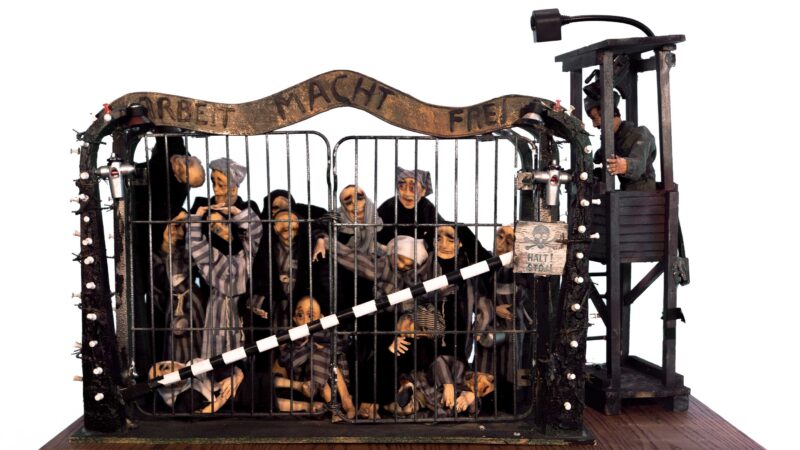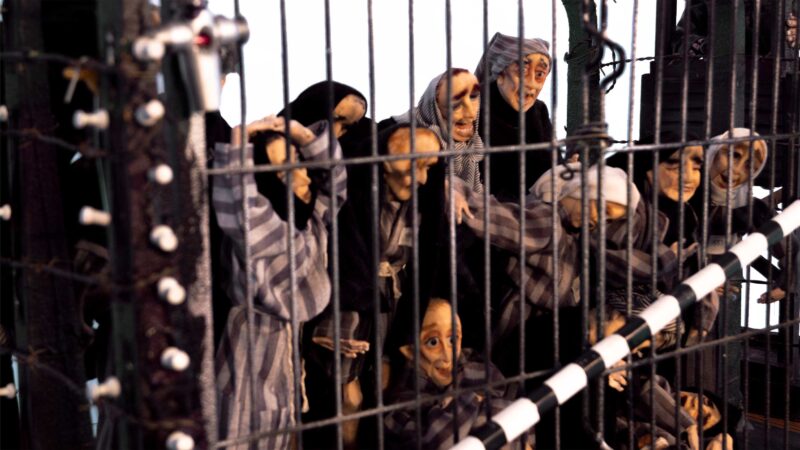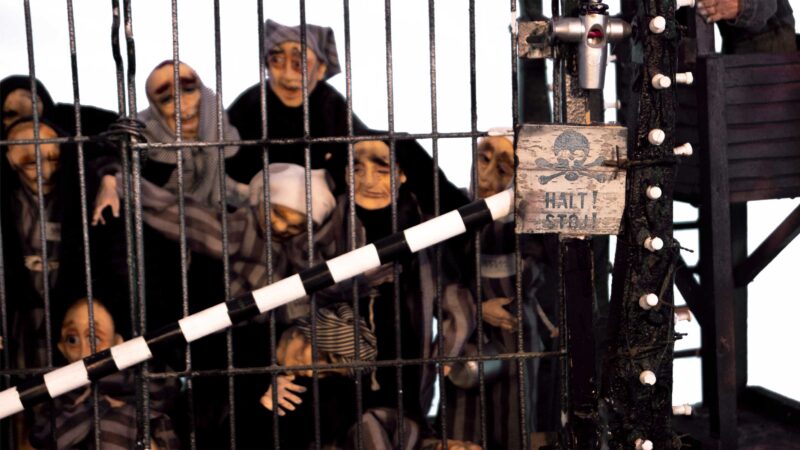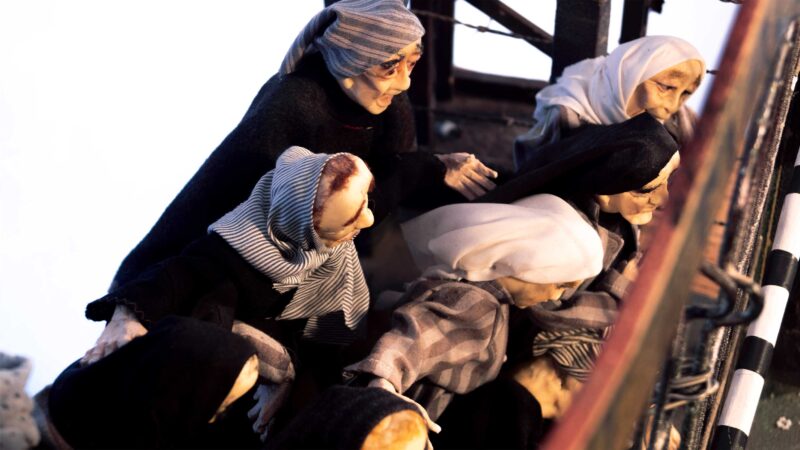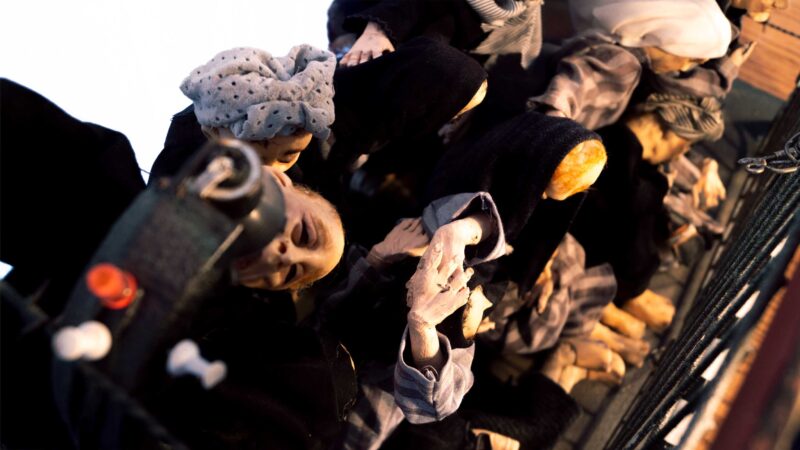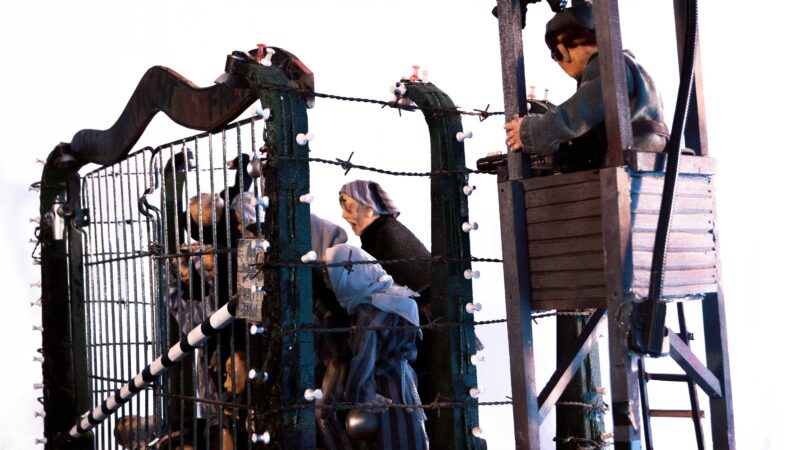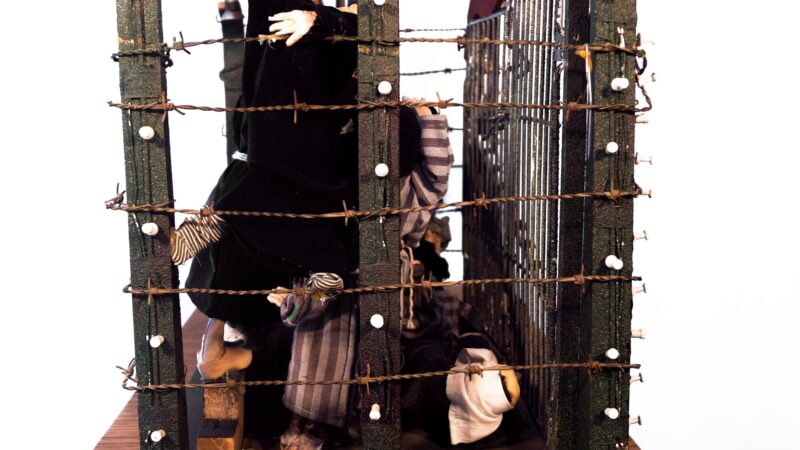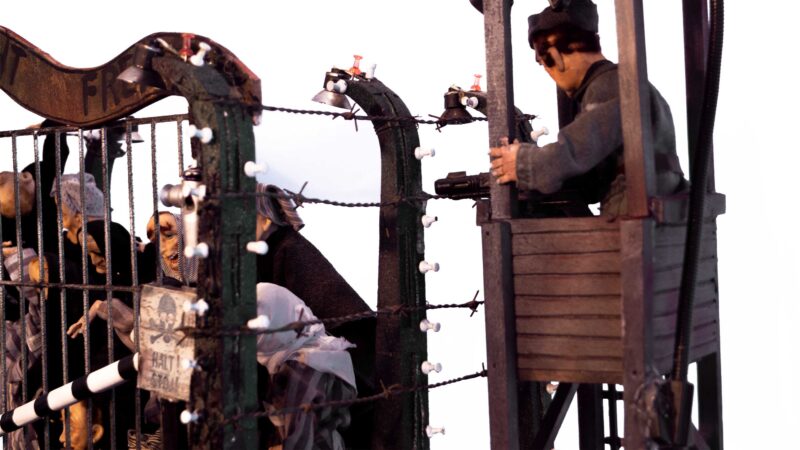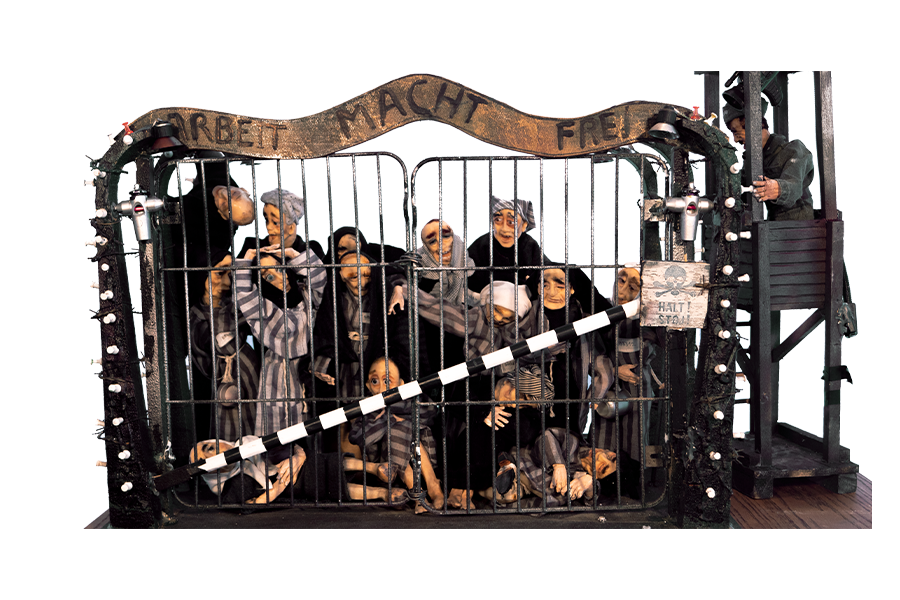
Magda Watts
On March 19th, 1944 my childhood suddenly ended. I was fifteen years old and the Germans, led by Adolf Hitler, began their occupation of my home.
It was somehow unbelievable to see the soldiers march into my town, even though we had heard stories throughout the war. It felt like a car accident. You see them from time to time and think ‘that will never happen to me’; and then one day you find yourself in a tailspin, wondering how it all went so wrong.
The Germans abruptly came to our house one day, rapped on the door and told us we had to leave, to close up our house, to pack a bag. No more than 10 kilograms, they said. People were nervous, but we tried to stay positive. The rabbis suggested we may be going to labor camps, but they convinced us that families would stay together, that what was coming would be hard but not fatal. How wrong they were.
We were marched through town to the train station a few kilometers away. The worst thing was how many friends lined up to watch us go. They had sinister smiles on their faces, anticipating what they would do with the homes and goods we were forced to leave behind. It was heartbreaking and infuriating to know these people so well and to feel abjectly abandoned by them.
At the train station, we were packed into cattle cars in groups of 80 or so. So many people were stuck together that there wasn’t space for anyone to sit or lay down. There were no windows, only a square hole that was covered with wire, so we couldn’t easily discover where we were or where we were going. It was uncomfortable even before we started moving. Once the door was shut, it didn’t open again for 4 days. There was no food or water on the train, except what people had brought with them. The guards gave each car one bucket full of water, and another that was supposed to be our toilet. It was unspeakably horrible.
One small rumor started to sprinkle through the car: that children and mothers with small babies would be separated from men and other adults. I don’t know how this information got to us, but it turned out to be true. Not yet knowing whether this was good information or just rumor, my mother decided to do her best to make me look like a full grown woman. She tied my hair up high in a fashionable style and she used any extra clothes she had to stuff my shirt and make it look like I had fully blossomed. It ended up saving my life.
When the doors finally opened, we were in Auschwitz, face to face with Dr. Joseph Mengele. As we came off the car, he told us to head to the left or the right. My sister and I were sent left and into the camp. My mother, older sister, and her two and a half year old baby were sent to the right, on to a truck, and straight to the gas chambers. There was no goodbye in that horrible place. They were just gone.
When we arrived in Auschwitz-Birkenau, it was still cold. My sister, myself, and about one thousand other girls were assigned to a specific block in the camp. before being taken to the barracks, however, the possessions we’d brought with us were taken away, including the clothes we had been wearing. A Kapo ordered us to get totally naked and then proceeded to shave everyone’s hair–all of it. They gave us a rough uniform to wear and marched us into the large hall where we spent the first night in Auschwitz sleeping on the cold cement floor.
As a conservative Jew, I had been accustomed to waking up every morning with a prayer. Most mornings, I’d said it with my mother beside me, giving thanks to G-d for returning me to life. On that cement floor, on the first cold morning in Auschwitz, that prayer had a question mark.
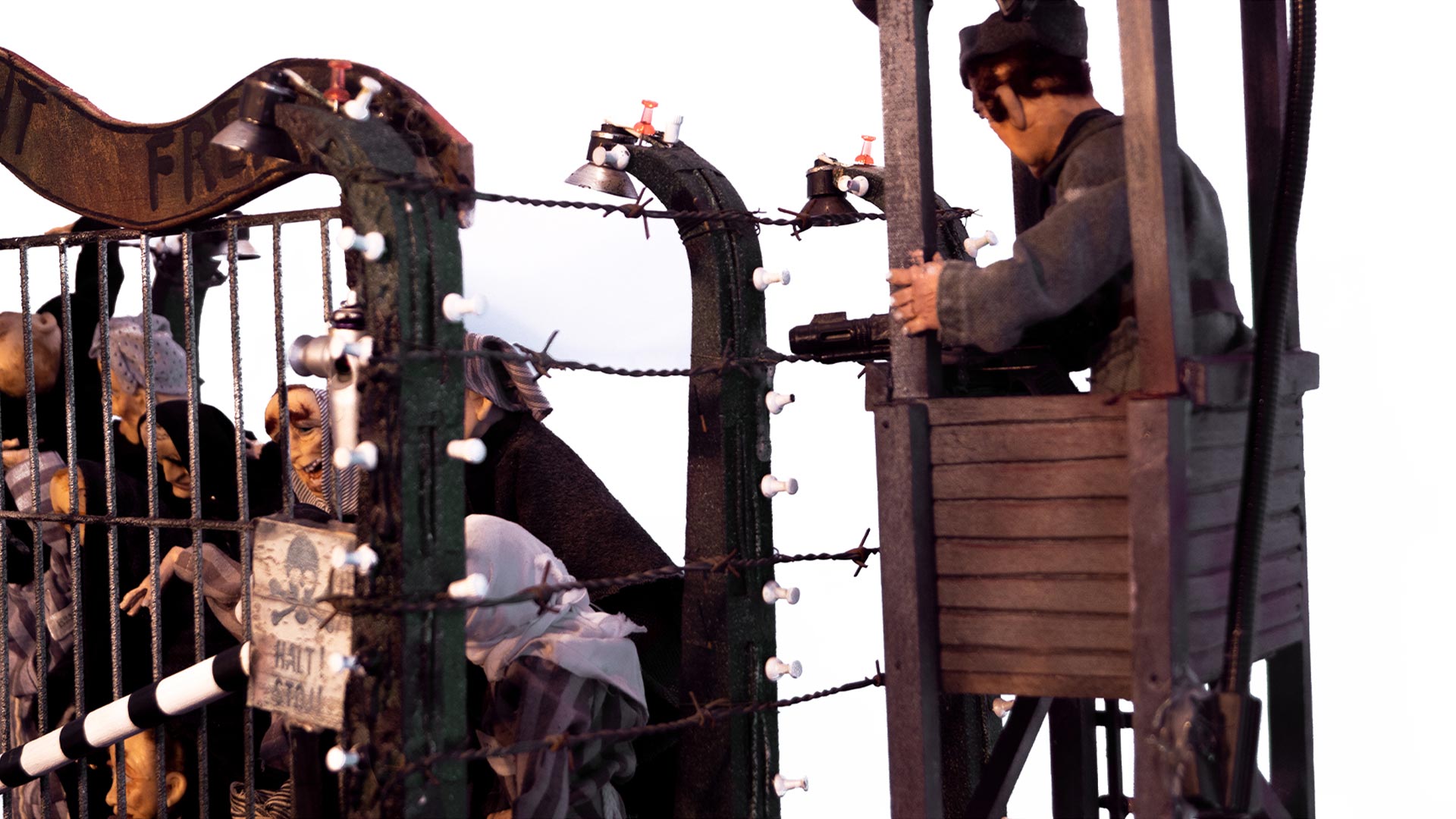
Nothing about life in Auschwitz is heroic. Every day is simply a battle to survive. Sometimes we told stories to ourselves and played games of pretend. Girls my age and younger would stand around barrel fires and imagine themselves cooking lavish meals; or they’d fling their scarves about, pretending to have long hair again as they readied themselves for a fictitious gala they were about to attend. As a 15-year old, I was growing more fascinated with the lurid details of life than the nostalgia of these fantasies. I found myself drawn to the stories of a few young women who had been imprisoned after a life in the brothels. They taught me about big city living, the dangers of womanhood, and all the swear words that I still know and use incessantly!
In the camp, my sister was like my mother. I kept her body and she cared for my soul. I was the one brave enough and fast enough to steal food. But she was the one strong enough to keep hope alive. She’d fill my mind with ideas about leaving Auschwitz, going home, finding our family, and it would bolster my spirits enough to carry on from one day to the next. Sometimes, however, I didn’t want to continue living. I watched so many people walk to the electric fence, reach out, and end it all. Occasionally I envied them. After seven months, I was so thin and weak, depressed and lethargic that I started to wish the American planes would just drop a bomb on us and stop our misery.
Then one day, everything changed for me and my sister. A group of 250 women was to be selected to go work as slave laborers for the Siemens corporation. Women of my age were lined up near the gates of Auschwitz to be selected for this work detail, which would take them away from the death camp. Before a selection could be made, the gates swung open and we all rushed out into the yard. 500 of us were there, all pretending that we had been chosen. I clung to my sister’s skirt, hoping our solidarity would save us. The guards realized there were too many of us and split us in two. One group headed toward the Siemens factory camp and my group was marched to the gas chambers.
It was a long and sorrowful walk; but then a strange thing happened. The guard at the doorway of the gas chambers was drunk and full of self-importance. He said to the Kapo leading us around that we were not supposed to be there, that we were to head to the train for duty in the Siemens factory. We turned, walked away, and boarded the train for Nuremberg, grateful, confused, and nervous that this good fortune was going to spin back on us. All these years later, it still feels like a miracle that the train left the camp.
The Siemens factory in Nuremberg was better than Auschwitz, if only because we actually had something to do. But shortly after I arrived, I got a terrible case of scabies. I wasn’t allowed to go to work with everyone else while I was sick, and I grew terribly lonely from the long days in isolation. It was during that period of boredom and sadness that I decided to try and make myself a doll. I milled about the dorm room and found scraps of fabric, pieces of wood and metal, and little pebbles that I could use to create a miniature friend. I fashioned a little school girl and called her my baby. She kept me company while everyone else was away.
There was a girl assigned to bring me and the other prisoners food. One day I asked her for a little extra food for my baby. She asked me to show her what I meant and I proudly held out my doll for her to see. Right away she asked me to give it to her. I said, “no this is mine. But give me more food and I’ll make you another one.”
And thus began my career as a doll maker.
She ordered one and brought me extra food. Then some guards decided they wanted one for their little girls at home, so they brought me extra food. Eventually, the SS officer in charge of the area found out about the dollmaker and he started ordering gifts for his children, his friends, everyone in the region that he knew. Because he had the authority to get anything he wanted to, I benefitted by proxy. I received any supplies I needed to for the orders that just kept coming; and to keep me healthy, I was given extra rations and didn’t have to do hard labor. I got so many orders that I was able to have my sister and two other young girls join me. Everyone got a bit more to eat and a slightly easier life… for a slave.
In wartime nothing lasts forever. Soon the Siemens factory was bombed and we were all set to the task of picking up the rubble. Half-naked in the winter cold, we had to chip plaster away from the bricks that had been blasted into the street. Day after day we worked like this. For months, our lives seemed more precarious than ever.
And then, suddenly, the Americans arrived with their chocolate and chewing gum. They took us to Pilsen, Czechoslovakia to make sure we were all healthy and well enough to return home. Soldiers would take us out to dinner, to the movies, to dance halls. It was a strange an surreal experience to suddenly move about in the world without an immediate fear of death. But I knew right away that not everything was right in the world. For example, the great liberators who had fought off my oppressor were segregated unto themselves. At a theater one night, I walked in through one door with all the white soldiers, while the black soldiers had to enter through an alternate route and sit in another section. They fought side by side, but couldn’t sit side by side. How could an unequal nation expect to truly liberate anyone else?
After a time, I was able to return to Hungary. But my home was gone. Most of my family members had been killed and our house was occupied. I decided pretty quickly to leave and joined up with a group of eight boys who had decided to run away. Over the course of a year I made my way to Israel, where I’ve lived ever since.
I finally returned to Hungary in 1983. I thought enough time had passed for me to confront the life I thought I’d left behind. But I quickly fell into depression. I couldn’t eat. I barely spoke to anyone. Even when I got back to Israel I was still a shell of myself.
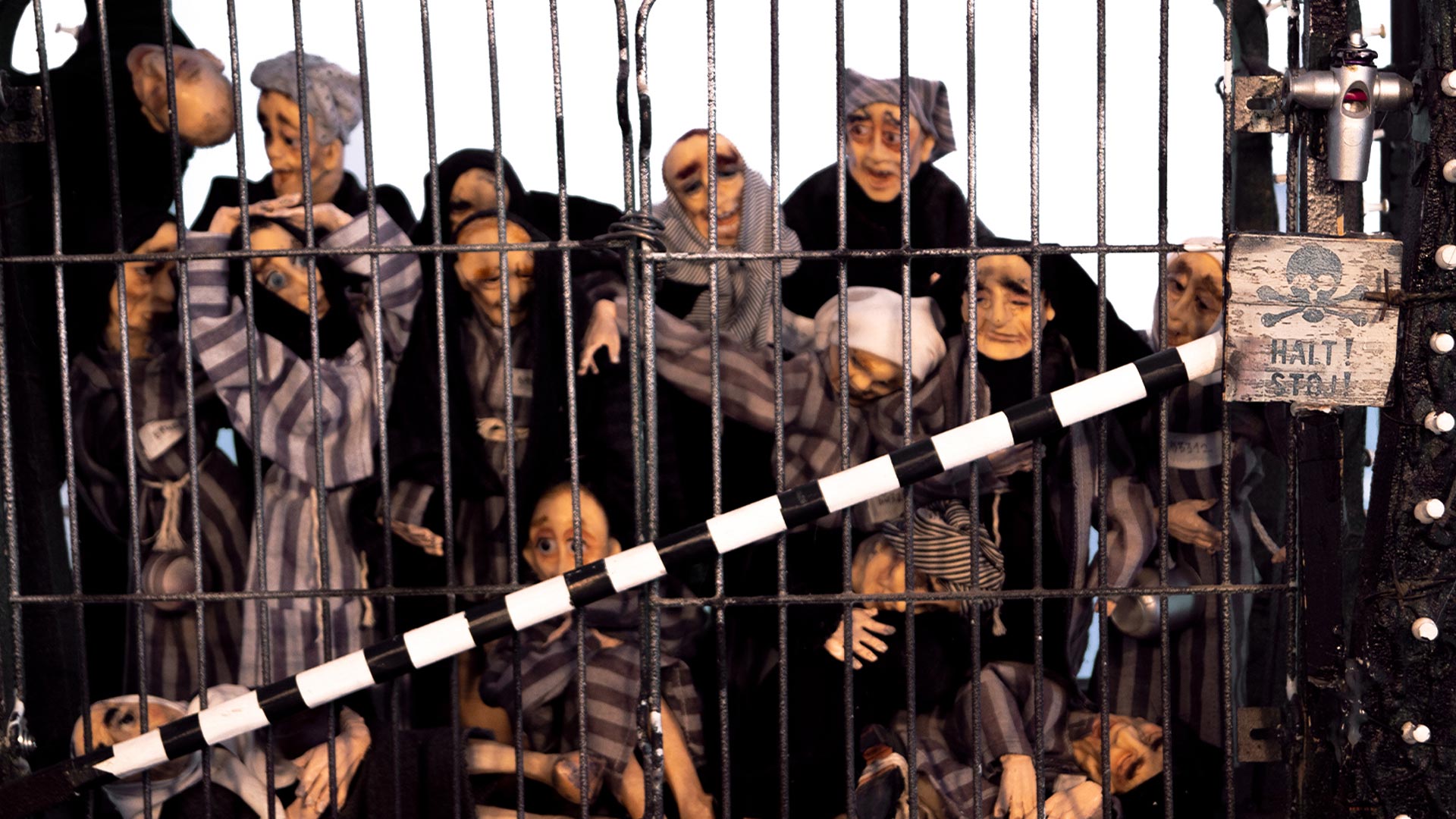
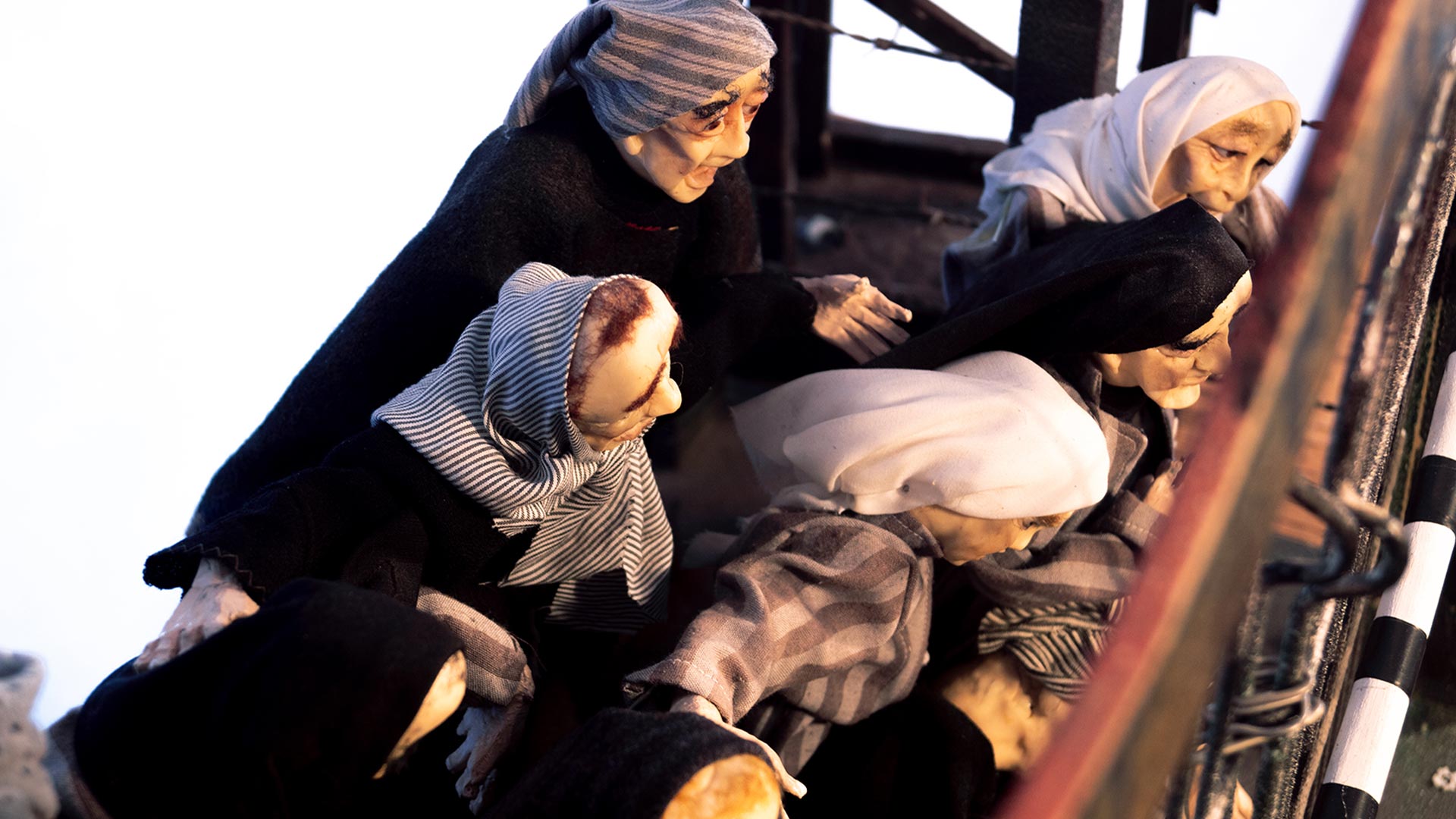
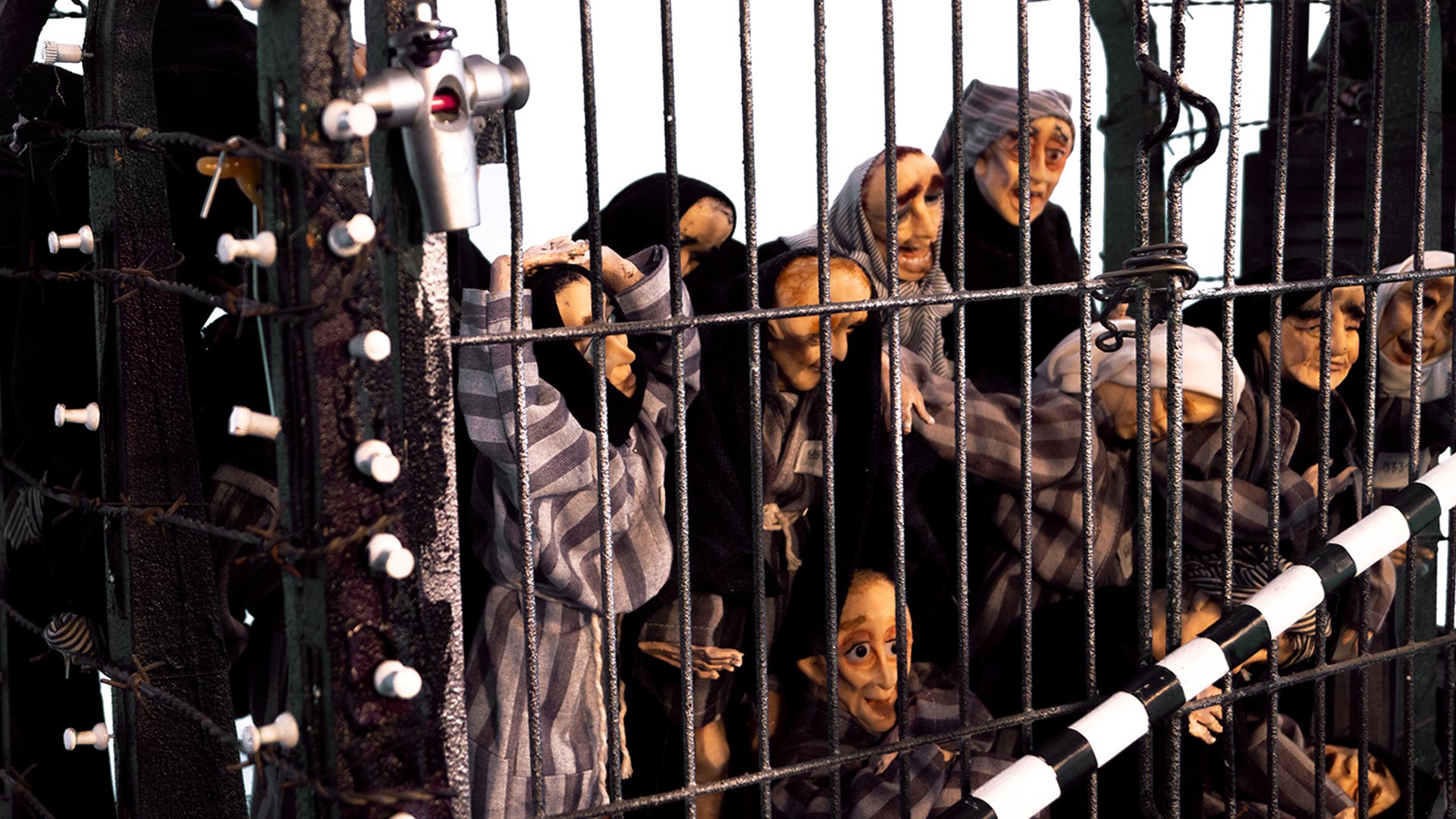
I hadn’t done it in almost 40 years, but the only thing that helped me navigate the pain and anguish of these resurgent memories was to make dolls again. It was like a traumatic response system. I felt the same kind of distress, and my whole being knew that the only way to overcome it was to create. For weeks, I did almost nothing else while the creative spirit just poured out of me. I don’t even know where the figures come from–the faces, their expressions, their postures and clothing. I just begin and they tell me who they want to be.
The process is very therapeutic for me. It allows me in subtle ways to process the past and reconnect to the goodness of the world. My work as an artist is what keeps me feeling young and beautiful and crispy. I keep creating because then when I go to bed at night I will be thinking about which dolls I’ll make the next day, instead of being overwhelmed by images of torture and death that play in a never-ending loop.
When you read the history books, it will say that we were liberated in 1945. But I was never liberated. It is only through my art that I can feel a sense of freedom. Luckily, my dolls still feel meaningful to other people and I’ve been given the chance to live as a professional artist for many years.
It fills my cup and it fills my soul and I am so happy on those days when I can be in my studio, with my dolls and my dogs and my cats, dreaming of new faces that I might bring to life.


